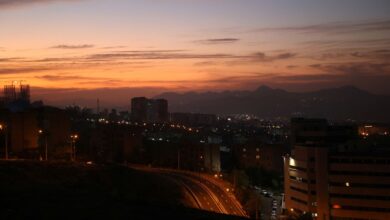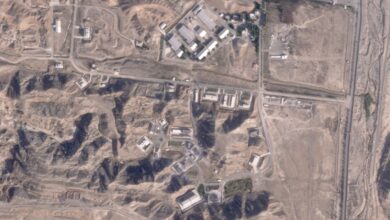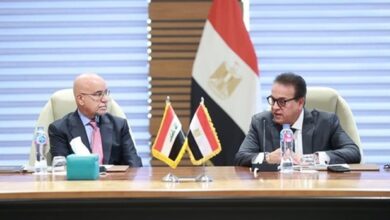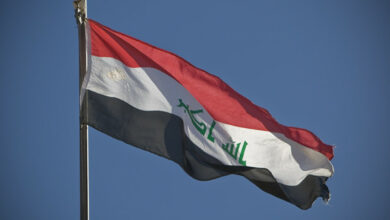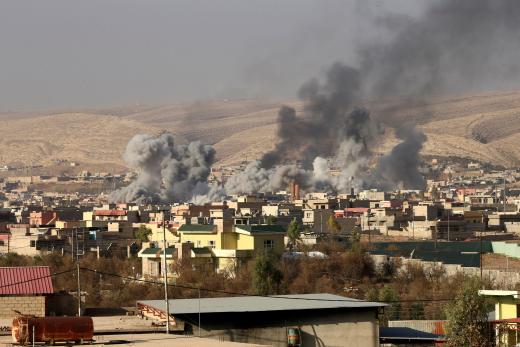
Facing brutal urban warfare in Mosul and with their push slowed by the presence of one million residents, Iraqi commanders examined changing strategy last week to help civilians leave to give the army a free hand to strike Islamic State fighters.
The proposal, a sign of frustration at slow progress in the six-week campaign against Islamic State in Mosul, was ultimately dismissed by Prime Minister Haider al-Abadi and his generals, military sources told Reuters in interviews.
Abadi and his advisers feared that fleeing residents could be massacred by the ultra-hardline militants who still control three-quarters of the city, and that authorities and aid agencies were in no position to handle a mass exodus.
But the fact they considered changing a central element of their plan, confirmed by two military sources and a government adviser, at the meeting on Nov. 24 points to growing anxiety about getting bogged down in a war of attrition in Mosul.
Islamic State militants who have controlled the city since mid-2014 have waged a lethal defense, deploying snipers, mortar fire and 600 suicide car bombers, as well as attacks launched from a network of tunnels beneath residential neighborhoods.
"Supreme commanders order us to make advances, and at the same time make sure to give priority to civilian safety," said an officer in the army's Ninth Armoured Division, which is fighting in the southeast of the city.
"How can we do that? It's mission impossible," said the officer, who declined to be named because he was not authorized to speak to the media.
The campaign to take Mosul, the largest city under Islamic State control in either Iraq or Syria, is the biggest ground operation in Iraq for more than a decade, pitting a coalition of around 100,000 Iraqi fighters against a few thousand militants.
Launched on Oct. 17, it has already taken longer than the 2003 U.S.-led invasion which toppled Saddam Hussein, and could yet become the most protracted battle in the 13 turbulent years since Saddam's downfall.
RISKS OUTWEIGHED BENEFITS
At current rates of progress the battle will stretch well into next year, threatening a humanitarian crisis in the city over the winter plus further heavy losses among army ranks.
"Last week our commanders discussed with other commanders in the joint military operation command the option of giving the chance to civilians to flee Mosul … to lift the burden from the advancing forces and allow them to engage freely with Daesh (Islamic State) elements," the army officer said.
A soldier in the elite Counter Terrorism Services (CTS), which is spearheading the offensive, said that with civilians out of the way the U.S.-led coalition which is supporting Iraqi forces could also step up air strikes.
Commanders agree that the move would "hasten the military advance", but felt the risks still outweighed the benefits, he said, citing an officer who he said attended the meeting.
"They instead decided to stick with the current plan," said the soldier who also declined to be identified.
Iraqi commanders say they have killed at least 1,000 Islamic State fighters, as they try to roll back its self-declared caliphate which covers large parts of Iraq and Syria.
They have not given figures for their own casualties, but the United Nations says nearly 2,000 members of the Iraqi security forces were killed across Iraq last month.
The Iraqi army makes no secret of the fact that the battle for northern Iraq's largest city is a greater challenge than any it has faced over the last two years.
FREEDOM OF ACTION
"In previous operations, either in Tikrit, Ramadi or Falluja, there were no civilians … (we had) freedom of action to use our weapons," operations commander Lieutenant General Abdul Ameer Rasheed Yarallah said.
"The instructions from the commander-in-chief (Abadi) are for the civilians to stay in their homes," he told Iraqi TV on Thursday night, adding that without that constraint CTS forces would have already recaptured the eastern half of the city.
"That's why you see a delay," he said.
For Abadi's Shi'ite-led government, reassuring Mosul's mainly Sunni residents that they should stay in their homes also sends an important political message that the army is on their side, and that Iraq can overcome the deep sectarian divisions which helped to create Islamic State in the first place.
The country's senior Shi'ite cleric, Grand Ayatollah Ali al-Sistani, said the army's treatment of people in Mosul was a source of pride.
Sheikh Abdul Mahdi al-Kerbalai, who delivered the Friday sermon in the holy city of Kerbala on behalf of the aged and reclusive religious leader praised "the magnificent performance in helping our people trapped in the theater of operations".
In the early days of the Mosul assault, authorities also sought to encourage a popular uprising against the ruthless but vastly outnumbered militants. Islamic State responded by executing dozens it accused of collaborating with the army.
"What we are saying is: 'Our brothers in Mosul, your units are coming. They will liberate you and stay with you,'" Yarallah said.
SUICIDE BOMBERS LOSE MOMENTUM
A spokesman for the U.S.-led coalition said international forces had had no substantive discussions with Iraqi authorities about changing plans.
"Our position aligns with the government of Iraq, which is that civilians should shelter in place – that's the safest thing," U.S. Air Force Colonel John Dorrian told Reuters.
Dorrian also said the rate of suicide car bombings was dropping off, partly because Islamic State – now cut off to the north, south, east and west of the city – had a finite number of cars and bombers, and because air strikes on bridges and roads inside Mosul had limited their ability to get them to the front.
"This tactic is beginning to lose momentum," he said.
So far the CTS and the army's Ninth Armoured Division have captured or cleared about half of the eastern section of the city, split by the Tigris river running through its center.
Yarallah suggested the battle for the west bank of the city could be even tougher because it was already densely populated, and many people had fled the fighting in the east to the – for now – relatively quiet western neighborhoods.
"THUNDER BEFORE RAIN"
When the army launched its battle for Mosul in mid-October it dropped leaflets over the city seeking to prevent a mass exodus which it feared could complicate the offensive. "Stay at home", the leaflets said, telling parents to reassure children the bombardment was "only a game, or thunder before the rain".
Most residents have complied – either out of choice, or because they felt trapped, or because they feared that by leaving they might lose their homes for good.
The United Nations has registered around 78,000 people displaced since the start of the campaign. That figure excludes many thousands more who have fled or been forcibly moved within territory still controlled by the ultra-hardline Islamists.
The presence of civilians is not the only headache for advancing troops. Winter rains have started, turning some roads to mud and hindering air support because of the cloudy weather, and not all security forces deployed are trained for war.
The armored division officer, whose troops have been battling in the southeast neighborhoods of Mosul, said police units sent to hold ground captured by the soldiers and cover their backs were not up to the job.
"They are not ready for a real fight. They are only fit to be park guards," he said, adding that an army reinforcement had been summoned from Baghdad.
AMMUNITION DEPLETING
Commanders hope that security forces still stationed a few miles south of Mosul will advance soon and open a new front inside the city, with the aim of stretching the militants' defenses more thinly.
Hisham al-Hashemi, who advises the government on combating Islamist militancy, told Reuters there were probably 4,000 Islamic State fighters still in Mosul.
The jihadists remain well organized and divided into cells defending separate neighborhoods, he said. But militants in the east had been cut off from the west by air strikes on bridges across the Tigris, boosting the army's chance to make progress.
"It will be slow and cautious. We're betting that Daesh will have had enough, that their ammunition is being depleted and they cannot resupply because the river crossing is finished".

